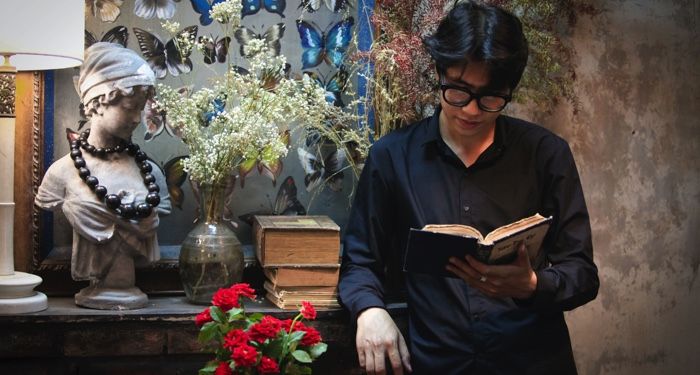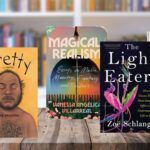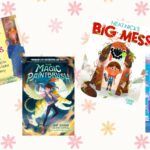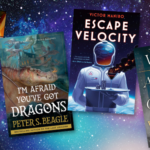
How Books About Books Get Me Out of Reading Slumps
You might have read that headline and thought, well, of course it’s because bookworms love books, so reading a book about a book is just a reminder of that passion. And that’s all true; there’s nothing like a good book about books to get you out of a reading slump, especially if the novel in question does a great job at capturing the essential powers of literature.
But books about books can be more powerful than that, especially when no other book you pick up seems to capture your attention. Also, my editor was very clear that the reason these kind of books get me out of reading slumps could not just be, “Because book lovers love books! Duh!”
In case you’re not entirely clear on what I mean by “books about books,” I’m thinking of books whose narratives revolve around a bookstore, a famous fictional novel or novelist, or really any scenario where the moral of the story revolves heavily around the power of literature. For me, the best books that revolve around literature are usually in the fiction genre, but there’s also a great selection of nonfiction books about books that are worth the find.
It only really hit me this year that I tend to gravitate towards books like this when I’m in the throes of a reading slump. And by that, I of course mean when I just can’t bring myself to be in the right frame of mind for any of the books on my TBR list, even sometimes highly anticipated new releases that I pre-ordered or bought right away because I had to have it in my hands as soon as humanly possible. Even the most diligent and disciplined of readers can relate to this struggle.
So, recently, when I’ve found myself in a wonky state of mind or mood where I’m just not feeling anything I pick up, a good book about books can reignite my love and passion for reading. Again, I’m not just referring to the cliche of “stories about books give me the warm fuzzies because books give me the warm fuzzies.” That’s definitely a part of it, but I’ve realized that the narratives in these novels often use the theme of literature as an allegory for human nature, self-worth and esteem, and the power of friendship and togetherness.
That, too, is a cliche, but just bear with me a little while longer. This spring, I devoured Meg Shaffer’s debut novel The Wishing Game solely because it sounded like Charlie and the Chocolate Factory but with books, and because Jenny Lawson gave it a high review. I’ll read anything Jenny Lawson recommends. Sure, the moral of the story is that the connections that can be made and forged by books begin in childhood, but the books in The Wishing Game act as a conduit for bringing kindred spirits together, which comforts me more than “story about a mysterious and reclusive novelist” ever could on its own.
The same can be said for Annie Spence’s Dear Fahrenheit 451: Love and Heartbreak in the Stacks, which I read and loved very much when it was first published in 2017. It’s a book that I should, come to think of it, reread. While this one is a nonfiction collection of essays written in the form of love letters to books that have shaped her life, it once again comes to pass that the books the author was consuming were merely acting as a security blanket and safety cushion for events both difficult and frivolous in life. It wasn’t so much the books that were the most powerful, it was what they helped unlock in her mind to help her realize her own power.
I’m someone who has a history of clinging to books under a false and magical presumption that if only I could find the right book at the right time, it will solve the mental illness I grapple with on a daily basis. Long before seeking out proper treatment for my mental health, I was legitimately under the impression that all I needed was the perfect book that would bring everything into focus, and therefore everything would be fine. But that’s bologna.
So now, when I fall into the inevitable reading slump that all voracious readers face at one time or another, I realize that I gravitate towards “books about books” not only because a good story about literature is balm for the soul, but because the books are merely the inciting incident into what will prompt the stories’ characters to find the light within themselves.
Suggesting that books about books are great just because book lovers love books is misleading, because it’s essentially subscribing to my former belief that a good book can save your life. A good book is the cure for a lot of things, but not everything. To paraphrase the famous last words of Cristina Yang, “[That book] is very dreamy, but [it is] not the sun. You are.” And who could ask for a better reminder of such a fact than reading about it in a book about books?









